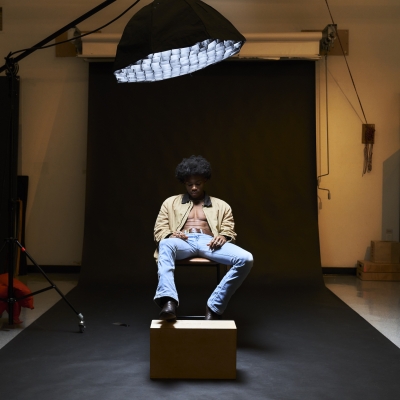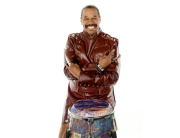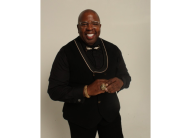When Isaiah Stone escaped the confines of a religious cult at the age of 12, he didn’t just step into a new world—he ran headlong into it, arms wide open. For most, the aftermath of such a seismic shift might bring disorientation, fear, or silence. But for Isaiah, it brought music.
“Shortly after leaving the cult, I was introduced to Fall Out Boy’s Save Rock and Roll by my older brother and his friends,” he recalls. “This marked the first time I felt like I had my own music outside of the music and dogma I grew up on. Songs like ‘The Phoenix’ and ‘Young Volcanoes’ invigorated me. At the time, this album really spoke to me and the angst I was feeling.”
That “own music” moment would become a foundation for the artist he’s grown into today: a self-taught multi-instrumentalist, producer, and songwriter who fuses rock, funk, soul, and hip-hop into a sound that’s as genreless as it is deeply personal. Raised on gospel and shaped by the ecstatic freedom of Hendrix and the experimental flair of Prince, Isaiah’s music doesn’t just reflect a journey—it is the journey.
“I am the sum of my influences, period,” Isaiah says. “And my blending of influences like funk, rock, R&B and hip-hop are autonomic—I can’t help it.”
Now based in Atlanta, Isaiah Stone is channeling his lived experiences—trauma, healing, joy, and everything in between—into tracks that feel raw and restorative all at once. His song “Leavin!” pulses with the defiance of someone reclaiming their story, while “No One Cares” delivers catharsis for anyone who’s ever felt overlooked. His sound isn’t easy to box in, and that’s the point. There’s no formula here—only feeling.
He returns often to the sounds of his childhood—not to relive the ideology he’s moved beyond, but to tap into something purer. “I often find myself going back to the old gospel songs I grew up on,” he says. “Though I’ve grown ideologically, the music still resonates.”
Comfort, for Isaiah, doesn’t come from conformity—it comes from resonance. “Artists like Jimi Hendrix and Sly & the Family Stone are always in my rotation. But lately I’ve been listening to Erykah Badu’s Baduizm. This album just soothes me. Also I think people find comfort in different things, so it’s hard to pinpoint. I just hope my music makes them feel—whatever that feeling is.”

That emotional openness is central to Isaiah’s artistic ethos. When asked which song best introduces new listeners to his work, he doesn’t point to a radio-ready single or a track that’s racked up streams. He points to “Get Down,” a testament to his willingness to lay it all out in the booth.
“I don’t have any particular hopes for what it tells them, other than I’m willing to be honest in my art,” he says. “What they get from the music is up to them, as long as there is something of enough substance to be had.”
That commitment to substance doesn’t come from a marketing strategy—it comes from surviving. A near-fatal car crash at 19 and the emotional fallout from losing his childhood community have given Isaiah a perspective most 20-something artists haven’t earned the hard way. But through it all, music remained his anchor, his outlet, and his offering.
So what’s next?
“I see myself doing what I’m doing now but on a MUCH larger scale,” he says. “Expressing more of myself and being even more vulnerable in my art. Maybe I’m on a beach somewhere tropical after winning a few GRAMMYs writing my next hit. Only time will tell.”
Whatever time tells, one thing is certain: Isaiah Stone isn’t just writing songs—he’s building a world. One where freedom sounds like funk grooves and distorted guitars. One where vulnerability is power. One where being yourself—fully, fiercely, and unapologetically—is the bravest thing you can do.







Add Comment
You must be logged in to post a comment.